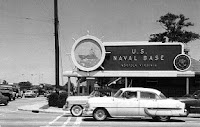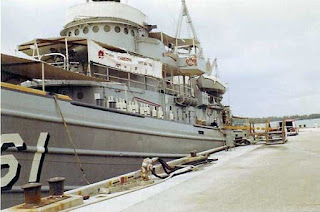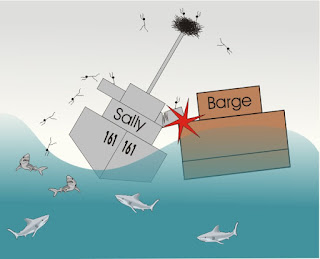There is another side to Japan from
its ancient temples, shrines and castle donjons.
Water.
| hand and foot soaks on the roadside |
Japan is surrounded by it. It falls
regularly from the skies. And, like life blood, it flows through the
body of Japan in the arteries and veins of its brooks, streams and
rivers. Some of that water is heated naturally deep in the earth, for
Japan is in the Ring of Fire, the volcanic rim of the Pacific basin.
If the Japanese have some kind of religious sacrament it would have
to be cleanliness, and with water in such abundance it's not hard to
understand why. Japan is known worldwide for its neatness and
relative safety. The corollary to environmental neatness is personal
cleanliness. Bathing is not merely a necessity here it is considered
one of the great pleasures of life. The best venue for the pleasure
of bathing is the 温泉町
“onsen machi” –hot spring resort—the phrase
also connotes many other pleasures.
| Asahi River in Yubara Onsen |
We are fortunate to live only a
two-hour drive from the finest example of a natural hot spring in the
western part of Japan (according to the town's PR spin brochure). All
you have to do is follow the river upstream from Okayama City until
you reach the hot spring town of Yubara where hot water actually
flows into the Asahi River, the same river that flows all the way
through Okayama into the Inland Sea. But, in Yubara, it's still more
a stream than the big river that flows through our city. So, road
buddy and I decided to kick off our winter travel with an overnight
trip to Yubara Onsen for my birthday. As we got higher into the
mountains the weather began to change rapidly. It was sunny when we
left the house, but started snowing about half way. Perfect!
| hot spring pools - lower center |
| entrance to the hot spring pools |
You see, the reason to go to Yubara
Onsen is for the hot water pools that sit right in the Asahi River.
Admission is free and bathing is both mixed and in the nude, swimwear
is taboo. If you are shy and modest you would be unwise to go to the
river pools. The ryokan – 旅館
– (inns) have same-sex bathing in privacy if you are
shy of exposing your body in public. But, there is nothing on this
planet to compare with the hot spring pools out in nature on a cold
winter night with the snow falling. If you are really lucky, and we
were, the clouds will break occasionally and the moon will peek
through the falling snow.
 |
| our own private hot spring tub |
 |
| Madama Butterfly |
Our ryokan had its own hot tub filled
with hot natural spring water piped right into the room. After we
arrived and checked in we took a walk to the river pools. It was late
afternoon and very cold so we were debating about going back out
after dark. Returning to the ryokan we filled the hot tub, mixed a
couple of Rusty Nail cocktails (scotch and Drambuie), opened a bar of dark chocolate and enjoyed a nice long soak before
dinner. If you stay in a traditional Japanese inn you are provided
with yukata – ゆかた
– (sleeping kimono) which you can wear to go to
dinner and even to go outside the inn if you wish. After reluctantly
getting out of the tub we donned our yukata and went down to the
private room where our dinner was prepared by an “Iron Chef”. We
ordered some kanzake – 燗酒
– (heated sake) with dinner that boosted the effect
of the Rusty Nails.
 |
| kanzake |
Being internally heated with sake we
were feeling somewhat brave about going out to the river pools but
still a little reluctant to go out in the cold. Yet, the memory and
lure of the natural setting—we had been here before—finally
overcame our reluctance. We put our down coats over the flimsy yukata
and went out to the river. It didn't seem as cold as it had earlier
even though we were wearing almost nothing (easier that way to get
undressed quickly in the cold air to slip into the hot pool).
It is difficult to describe being in
the hot spring in the cold, snowy open air. It is so idyllic. There
were just a few other people when we arrived. It's chilly on bare
skin until you slip into the hot water, then, miraculously, you don't
feel the cold at all. Only your head is out of the water but the head
and face are the least sensitive parts of the body to cold anyway.
Nevertheless, the hot water penetrates quickly to the bones and you
can soak for hours talking quietly just being alive. It is truly one
of the most exquisite feelings I can think of offhand.
| dressed to kill |
We stayed in the pools for over an
hour and then got out, dressed and walked back to the inn not feeling
the cold in the least—the penetrated heat holds for quite a while
after getting out of the hot spring. After finally getting up in the
morning we refilled the hot tub in the room and soaked a bit more
before going to breakfast (mine western style, hers Japanese style).
| hi tech instructions |
One more aspect of water usage in
Japan I forgot to mention—hi-tech toilets. These marvels of the
bowel movement have been around for a while, but being something of a
naturalist I have avoided using them. However, all good resolutions
meet their nemesis sooner or later and our inn had a hi-tech toilet
that I had no choice but to use. Of course, I could have chosen to
simply let if flush (by itself) and not to use the various toys on
the wall panel, but curiosity finally got the better of me and I
succumbed to a couple of the functions cutely illustrated on the
panel. I will leave it to your imagination to decide which ones.
| hiking at Takebe |
| susuki - pampas grass |
It had continued to snow lightly
overnight and the car had a light covering of snow, but the sun was
shining and the road was clear enough so as not to present a driving
hazard since I have no snow tires. We had a pleasant drive back on
the back country roads along the Asahi River, stopped off to do some
hiking on some woodsy trails that we know in Takebe, and arrived back home in
the early afternoon. All in all, it was a great change of scene and a
nice kick off for our upcoming trip to Europe in January.

















